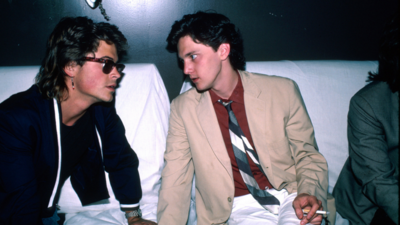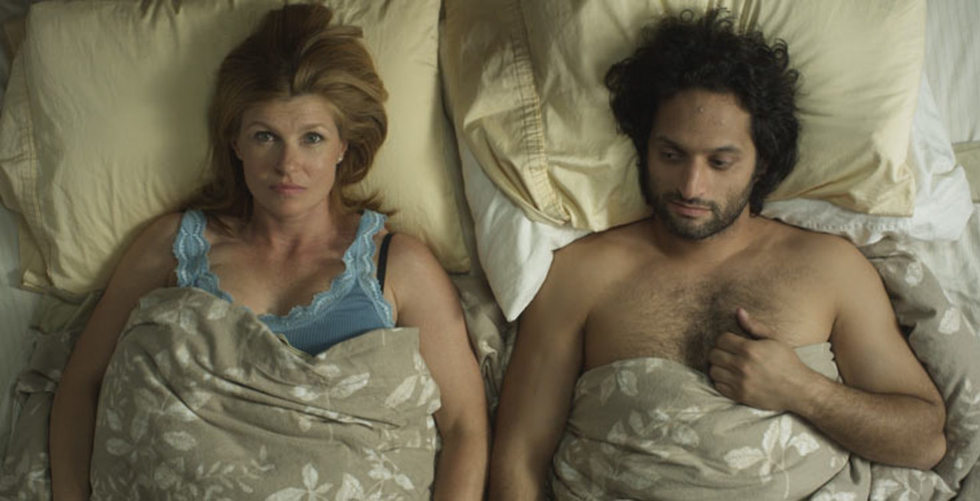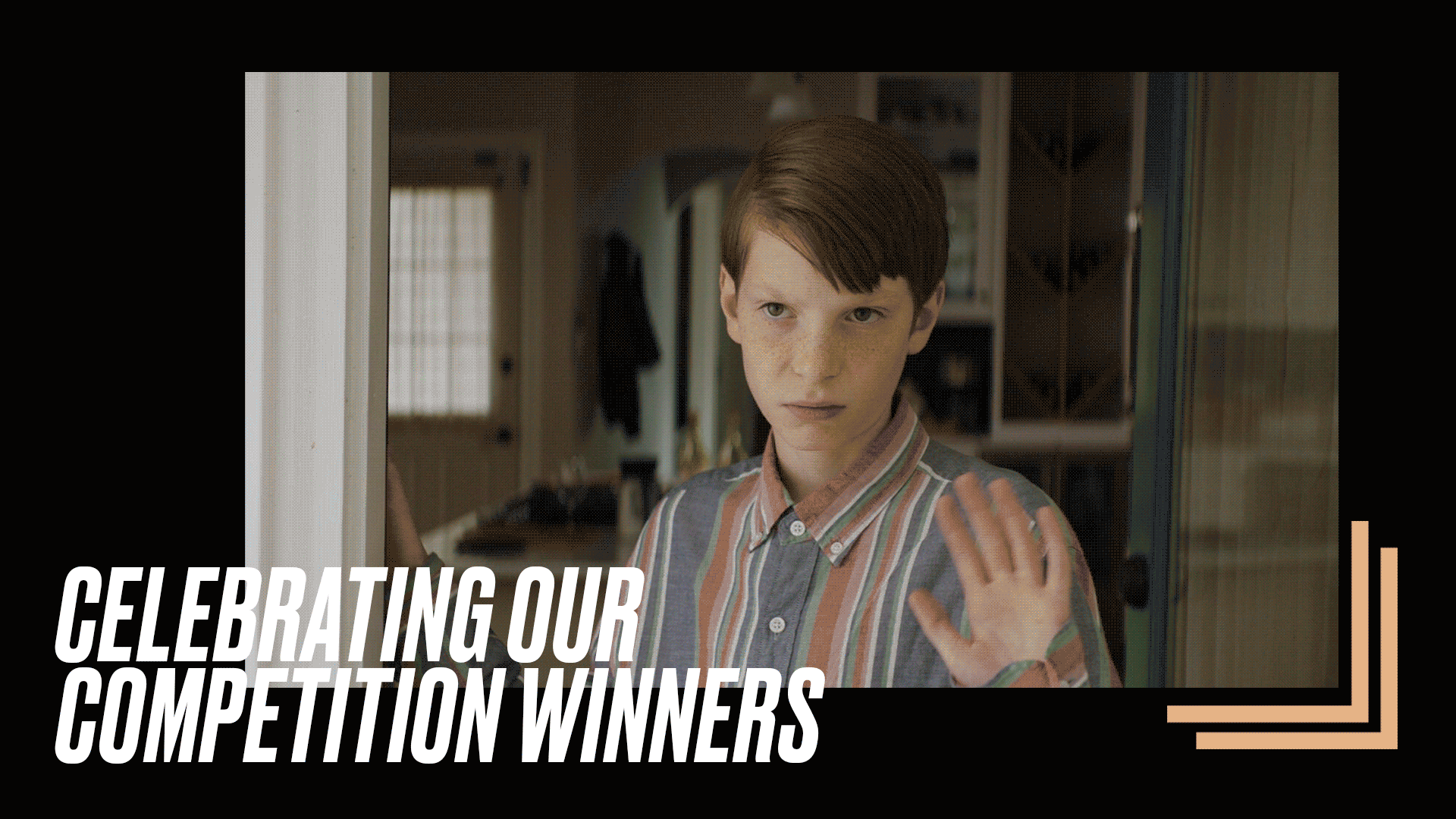
BY KRISTIN MC CRACKEN |
The Birth of a Film
Josh Stolberg rounded up a high-wattage cast for Conception, his sexy, candid, interwoven tale of love in the modern age. Now on VOD.

Now on VOD via Tribeca Film, Conception is a clever romantic comedy that proves it takes more than sex to make a baby. Plugging into a very zeitgeisty topic of our times, director Josh Stolberg intertwines the stories of nine diverse couples who, wittingly or unwittingly, conceive a baby on the same night. The terrific ensemble cast includes Julie Bowen and Sarah Hyland (both from Modern Family), Connie Britton (Friday Night Lights), David Arquette (Never Been Kissed), and Jason Mantzoukas (The League).
We recently talked with Stolberg to talk about his impressive cast, among other topics. His interview, like his movie, is refreshingly candid and full of surprises. The movie was made in ten days. 10 days! But we're getting ahead of ourselves.
Tribeca: Tell us a little about Conception. How do you describe the movie in your own words?
Josh Stolberg: Conception is a sexy but candid romantic comedy that follows nine different couples in the moments before, during, and after they conceive. It is, I hope, a positive look at some of the crazy ways we wind up becoming parents.
Tribeca: What inspired you to tell this story? Any personal anecdote you want to share?
Josh Stolberg: When my wife, Leila, and I were trying to conceive, we had one particularly big, blow-up fight, but it was right when she was ovulating, so in spite of how angry she was, she still had to have sex with me that night. I thought it was funny. Much later, she did, too.
But the episode made me realize that the fairytale that we’ve all been fed about “where we come from” is just that... a fairytale. The idea that “a man and a woman love each other very much and give each other a special hug and out pops a baby” is ridiculous. While sex can be a simple act of love, it can also be awkward, embarrassing, clinical, heated, explosive, messy, and a million other adjectives.
Tribeca: With all the seemingly separate storylines, Conception has a solid ensemble cast, including Connie Britton, David Arquette, and Julie Bowen. What was your casting process like?
Josh Stolberg: We were so lucky to get this cast! I can’t believe how generous all our actors were to come do this film. Because of the sexual content and the small budget, it’s a miracle we landed one of these actors, never mind nineteen of them. To answer your question though, it took getting our first “stars” to sign on before we could start approaching other big name actors. Luckily, we have AMAZING friends... who also happen to be INCREDIBLE actors.
Jonny Silverman is an old friend, and he had already done a movie with my wife and me a few years ago, as had Connie Britton. Connie starred in Brothers McMullen with one of my best friends (who is also an amazing actress in our film, Jen Jostyn). I gave Connie and Jonny the script and said, “Pick a role...” I think I offered to do their laundry and yard work for a year or something, too, and they both agreed to come on board. I had directed a small film years ago with Gregory Smith and Julie Bowen (before she was winning Emmys and stuff). I called Julie and dangled the carrot that she was going to be able to make out with Greg and she said, “Just tell me what day to be there.”

After we had a few of these recognizable faces, it was much easier to go out to talent agents with the project. We also had two tremendous casting directors in Katie Piel and Elizabeth Shoai. Many of these actors make millions of dollars a project; it’s not easy to call up an agent with an offer of 100 bucks (by the way, that is NOT an exaggeration; $100 was the top salary in the movie). But those first four actors signing on really opened the door for us to get this stellar cast. I still owe a lot of friends laundry and yard work.
Tribeca: How do you work with actors? Is there room for improvisation, or do you stick closely to the script once you start to shoot?
Josh Stolberg: I love actors. I come from a theater background, so I enjoy using the rehearsal process, including improvisation, to bring out moments from the characters that I hadn’t conceived when writing the script.
Unfortunately, with this small a budget, and this tight a shooting schedule (we shot 10-14 pages of dialogue a day), there wasn’t much time to go off script. We had to get what was on the page or risk not having a movie. That said, Jason Mantzoukas added a couple of brilliant lines that, when my wife really wants to tweak my nerves, tells me are her favorite lines in the whole film.
I’ve been writing movies in Hollywood for over ten years, and the job can be a very lonely and isolating experience: just you and a computer. So being on set with this cast and crew, all helping to breathe life into the characters, made all the months of seclusion worthwhile.
Tribeca: Since the storylines take place independently, can you describe the shooting schedule? Did you film all the scenes with each couple separately and then move on, or was it more integrated?
Josh Stolberg: Part of our ability to get all of these amazing actors for basically the price of a ham sandwich was to promise them they were only working one day, albeit a 12-hour, emotionally-intense, dialogue-packed day. We shot their entire story line in a day. The actors had to bring changes of clothes so we could shoot their main story, then get them changed for the end-of-the-movie reveal that they’re pregnant. The first order of business for each pair of actors was to photograph them as a couple, which we would quickly print out, put into a frame, and use as set dressing. Those were hectic days!
Luckily a few of our actors were already couples: Jonathan Silverman and his wife, Jen Finnigan; Matt Prokop and Sarah Hyland; and a couple others. But for some of them, they had to make that relationship believable in the space of a few minutes.
So we were able to shoot the whole film in ten days, which is almost unheard of when making a feature. Nine days for the nine couples, and then the scene with David Arquette that bookends the movie on the tenth day.
Tribeca: What's the craziest thing (or "lightning strikes" moment) that happened during production?
Josh Stolberg: For me, the “lightning strikes” moments were mostly in performance. I was continually amazed at how professional and nuanced our actors were. Take someone like Sarah Hyland, who while awesome and perfect in Modern Family, doesn’t get a chance to totally spread her wings on that show. We had a scene in Conception where she had to cry, and I swear, she was able to get this one tear to run down her cheek and hold on the tip of her nose for like twelve takes in a row. It was incredible.

But there were so many “little” lightning strikes. Like the prop needle that we were using that Jason had to stab into Connie’s butt... it was REALLY sharp. And the first time he did it, full speed, we were lucky to have the cameras rolling because Connie’s reaction was soooo real and hysterical. I think her scream woke up the baby that was sleeping downstairs (we were shooting in our neighbor’s house who lent us their home for the day).
What also struck me again and again was the level of commitment everyone on set had to helping me make this movie. It really showed me how important it is to have good energy and hard workers on the set. Alan Tudyk, whom I had only met once before his shoot day, arrived on set (which was my house) and asked where his dressing room and his costume were. When I showed him our bedroom (his holding area) and my dresser full of T-shirts (which held his choice of wardrobe), he realized what he had gotten himself into. But he smiled, shifted gears, and wore my favorite Essex Green shirt for his scene. Coincidentally, Essex Green’s song “Fabulous Day” opens our movie, and it’s a band that a good buddy of mine from college started. The whole movie was an incestuous experience. And we could NEVER have made it without all of our friends.
Tribeca: What's your advice for aspiring filmmakers? Is there one particular thing you learned making Conception that you didn’t learn from your other films?
Josh Stolberg: Pre-production is vital! Especially on this low budget, but on any budget, you’re usually using someone else’s money, and they don’t want you wasting it. Making your days makes everyone on set feel that you know what you’re doing. I remember when I was younger, a guy I had just met was getting a chance to direct his first film in Bulgaria, but he was worried because he had been told that their workdays were much shorter than ours and he didn’t know if he’d be able to make his days. I joked that Clint Eastwood is famous for short days and few takes, and he pointed out that a crew working for Oscar-winner Clint Eastwood is probably going to respond differently to direction than they would for some schlub directing his first feature out of film school.
All of this is to say, I always try really hard to let my crew know how much I value them, even if they aren’t getting paid what they’re used to. I couldn’t do anything without their work and expertise. The same with the actors, of course. I try to walk the line between letting people know that I’m in control and letting them know how grateful I am that they’re there. You hear stories about tyrannical directors whom people are afraid of—I’m more of the kind of guy who picks up donuts on the way to set.

Tribeca: As this was your first time as the sole writer/director, what was your biggest challenge or lesson learned? Anything you would do differently next time?
Josh Stolberg: It was really exciting for me to attack this film in a different way than I usually do on my big-budget studio films. When you’re working with a budget of 30 or 80 million dollars and you know they are going to spend another 25 million in advertising, you are obligated to try to make the most commercial movie you can. You write “set pieces” every six pages and you need to consider things like, “What’s the poster going to be?” Sometimes it can have a homogenizing effect on movies. We couldn’t afford set pieces, so the biggest challenge was finding something else to make the film exciting to watch. My hope is that everyone seeing the film will personally relate to at least one of these various couples. And that they might even find the humor in the ones that they don’t relate to.
One of the other challenges was to attack the subject matter aggressively, but artfully. While our movie isn’t about sex, I certainly couldn’t shy away from it. One of my favorite directors is Pedro Almodovar. He never glamorizes sex with soft blue lighting and slow pans across the actors’ bodies. In the same way, I hope to address the sex in a natural way without showcasing it. The film isn’t supposed to be sexually provocative so much as emotionally provocative.
Tribeca: Conception is a hot topic these days, with advances in infertility treatment, but some of the basic scenarios never change. What do you want audiences to take away from Conception?
Josh Stolberg: Conception is really a movie about love. When we’re young, we have a fantasy about how we were brought into this world. But just because it’s not a fairytale, it doesn’t mean that it’s not extraordinary, for a million different reasons.
Tribeca: What makes Conception a must-see?
Josh Stolberg: First of all, I’m so thrilled by the amazing talent in this cast. Each actor brought so much to his or her role. I feel like they held up a mirror to so many of us. My hope is that everyone sees some glimpse of him or herself in this film, or that they see that their relationship is not an anomaly. We had so much fun making this movie, showing all sorts of relationships, different stages of love, less than perfect sex. I think there’s something in there for everyone who has ever been in a relationship.

Conception will debut on VOD on Friday, February 24. Find out where you can watch it.
 Like Conception on Facebook.
Like Conception on Facebook.
 Check in to Conception on GetGlue.
Check in to Conception on GetGlue.
Watch the trailer:

